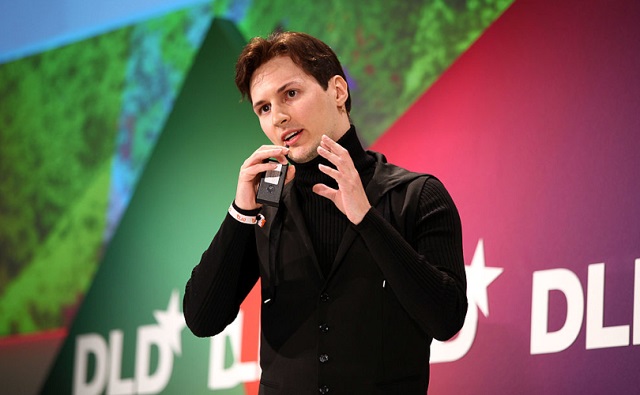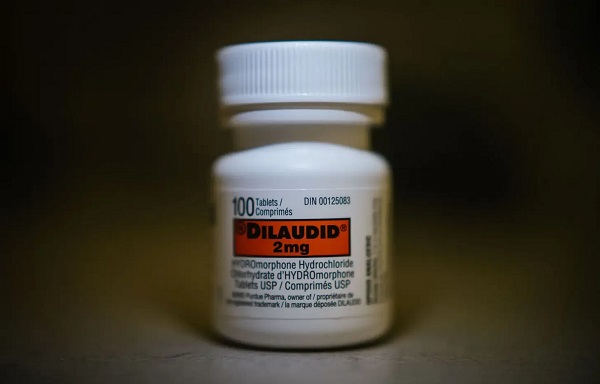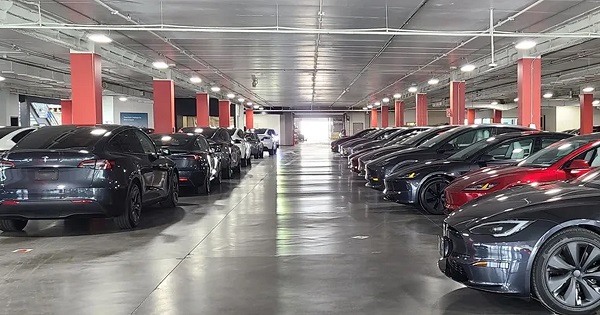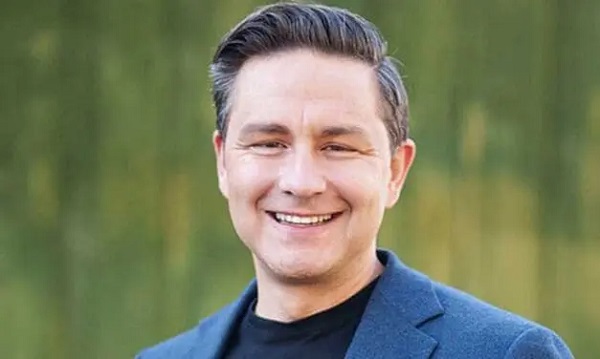Business
Arrest of Telegram founder Pavel Durov signals an increasing threat to digital freedom

Pavel Durov of Telegram speaks during the Digital Life Design conference (DLD) at HVB Forum on January 24, 2012, in Munich, Germany
From LifeSiteNews
The message being sent to every tech visionary, journalist, or outspoken citizen is if you don’t play by the new rules, the state will come for you. They’ve got the global mandate to ensure that dissenting voices are silenced, one way or another.
Picture this: a tech billionaire, who’s made his fortune building a platform that prioritizes privacy and free speech, is arrested at a Paris airport. Sounds like the plot of a dystopian thriller, right? Except it’s real life. Pavel Durov, the brain behind Telegram, found himself in handcuffs at Le Bourget airport over the weekend, marking another dark chapter in the ongoing war against free speech.
What’s Durov’s crime, you ask? Well, it depends on which bureaucrat you ask. According to the official indictment, he’s guilty of everything short of kicking puppies – fraud, drug trafficking, organized crime, encouraging terrorism, and, just for good measure, providing encryption. The French authorities must have felt ambitious that day, throwing in the entire criminal code just to be sure. Let’s not forget that this whole circus started because Durov reportedly had the audacity to support free speech. Apparently, in 2024, that’s enough to get you a one-way ticket to a Parisian jail cell.
READ: Telegram founder Pavel Durov arrested in France
Durov’s detention has been extended by 96 hours. Because, you know, it takes a while to figure out which of these ludicrous charges will stick when the real crime was defending free speech.
French President Emmanuel Macron assures everyone that Durov’s arrest is nothing more than a purely “judicial,” non-political act. You know, the kind of legal housekeeping every free society must endure to keep its otherwise robust freedoms from accidentally going rogue. Because, clearly, when you find the head of a privacy-focused tech giant behind bars, it’s all about upholding legal standards, right?
I have seen false information regarding France following the arrest of Pavel Durov.
France is deeply committed to freedom of expression and communication, to innovation, and to the spirit of entrepreneurship. It will remain so.
In a state governed by the rule of law,…
— Emmanuel Macron (@EmmanuelMacron) August 26, 2024
But before we crown France this month’s champion of authoritarianism, let’s take a quick tour around the globe. In the European Union’s ever-benevolent grasp, a high-ranking official is threatening to drag U.S. social media platforms through the censorship ringer. What’s the endgame? To ensure that the EU’s favorite brand of speech policing crosses the Atlantic. Forget about free expression – it’s all about toeing the line, or else.
Not to be outdone, Brazil’s Supreme Court is adding its own flair to the global crackdown with secretive censorship orders slapped on online platforms. The idea here is simple: if you can’t kill the message, just gag the messenger. No court hearings, no appeals – just pure, unfiltered control.
And then there’s the pièce de résistance: the British prime minister, who’s now arresting citizens for – wait for it – social media posts. That’s right. In the United Kingdom, all it takes is a tweet or a Facebook rant to earn yourself a pair of handcuffs. George Orwell must be rolling in his grave, muttering, “I told you so.”
So, here we are, watching as the pillars of free speech are bulldozed in broad daylight, with tech moguls like Durov tossed behind bars for daring to build platforms that don’t kowtow to government censorship. The arrest of a billionaire for refusing to censor, a prime minister having citizens arrested for social media posts, an EU official threatening American companies with censorship demands, and a Brazilian judge unleashing secretive orders – this isn’t just a bad month for free speech; it’s a full-on assault.
What’s the message being sent to every tech visionary, journalist, or outspoken citizen? Simple: if you don’t play by the new rules, the state will come for you. They’ve got the handcuffs, the secret orders, and, apparently, the global mandate to ensure that dissenting voices are silenced, one way or another.
This isn’t just about Durov or Telegram. This is about the battle lines being drawn between governments that want absolute control and a shrinking pool of platforms still willing to fight for freedom. These are dangerous times for free speech, and if we don’t pay attention, we might just wake up to find it gone for good.
Durov, who departed Russia in 2014 following disagreements with the Kremlin over internet freedoms, particularly related to his refusal to close opposition groups on the VK social network which he founded at the age of 22, has since dedicated his efforts to developing Telegram.
Yet, after escaping Russia and its oppressive censorship demands, it’s now Western governments that have been the ones to make censorship demands.
Created with his brother Nikolai in 2013, Telegram initially functioned similarly to other messaging services but has evolved into a more complex social network, facilitating large-scale communication through channels and groups.
Despite residing in Dubai, where he enjoys citizenship alongside France and the UAE, Durov champions the app as a bastion of neutrality and free speech in an increasingly monitored digital world.
In a statement on Telegram, the company said, “Telegram abides by EU laws,” mentioning the Digital Services Act in particular and adding that Pavel Durov “has nothing to hide.”

The sight of Russian officials donning the mantle of “free speech defenders” is like watching a fox petition for chicken rights. Yet, here we are. Moscow is outraged – not at the idea of censorship (they do enough of that themselves) but because they’re not the ones holding the keys to the cell. French authorities, evidently too busy trying to build a legal house of cards against Telegram’s founder have somehow managed to snub their Russian counterparts, who are now demanding consular access and throwing diplomatic shade from the Russian embassy in Paris.
Enter Vladislav Davankov, the deputy speaker of Russia’s State Duma, who’s managed to turn Durov’s arrest into a soapbox moment. Davankov’s allegation? That Durov’s detention is nothing more than a thinly veiled scheme by the West to hack into Telegram’s treasure trove of user data. According to him, this kind of violation of privacy “cannot be allowed.” That’s rich, coming from a regime that’s never met a dissident it didn’t want to silence or a data packet it didn’t want to intercept. But his allegations against the French government may actually be pretty close.
To understand why Moscow is crying foul over Durov’s arrest, one must rewind the clock to 2014, when a 29-year-old Durov found himself at odds with the Kremlin. Back then, the Russian government was trying to twist his arm to shut down opposition groups on VK, the social network Durov had built from the ground up. Instead of capitulating, Durov took a stand for internet freedom, packed his bags, and left Russia for good. Fast forward a decade, and Durov is now based in Dubai, where he enjoys triple citizenship and a lifestyle reportedly far removed from his Kremlin-tangled past.
Durov’s masterpiece, Telegram, started as just another messaging app, but has since morphed into a digital juggernaut. With 950 million monthly users, it’s a lifeline for news, a platform for both truth (and yes, like any other platform or legacy news outlet, misinformation) and, much to the chagrin of various governments, a symbol of digital resistance. In the chaotic storm of Russia’s invasion of Ukraine, Telegram has become a critical tool for both reporting on the conflict and narratives that governments find increasingly difficult to control.
The irony in all of this is that after fleeing Russia’s oppressive demands, it’s now the so-called free world coming after Durov. The man who said “no” to the Kremlin’s censorship now finds himself in the crosshairs of Western governments, who are just as eager to force his hand. While the West has long championed itself as a bastion of free speech, Durov’s recent experience suggests otherwise.
Telegram’s official statement makes this clear enough: “Telegram abides by EU laws,” it reads, with a polite nod to the much-vaunted Digital Services Act. But the real interesting part comes with the company’s assertion that Durov “has nothing to hide.” This could be true – or it could be the last defiant proclamation before the doors are kicked in by the data-hungry enforcers of digital orthodoxy.
For Durov, this ordeal must feel like a twisted rerun. The same man who once resisted Moscow’s censorship demands now finds himself dodging the West’s increasingly sharp regulatory spears. It’s a grim reminder that no matter which flag flies over the government building, those in power seem to share one common goal: control.
The arrest, coupled with the Kremlin’s performative outrage, lays bare the truth about the state of global free speech: it’s under attack from all sides. Whether it’s through overt censorship, as seen in Russia, or the subtler, but equally insidious, pressures from the West, the aim is the same: silence dissent, control the narrative, and pry open every digital lock that doesn’t fit the state’s key.
In the EU, the Digital Services Act has been rolled out with all the fanfare of a revolutionary triumph, marketed as a safeguard for user “safety.” The truth, however, is far more sinister. What the EU is really doing is tightening its grip on the digital world, muzzling dissent under the guise of combating “misinformation” and “hate speech.” The arrest of Durov in France is just the latest – and most brazen – example of this creeping authoritarianism dressed up in bureaucratic language.
The DSA is the EU’s shiny new tool for keeping social media and tech companies under its thumb. It mandates that platforms like Telegram must now answer to Big Brother, swiftly addressing so-called “disinformation” or risk facing severe penalties. The law is designed to force companies to do the dirty work of governments, effectively turning them into enforcers of state-approved narratives. It’s not about protecting users; it’s about controlling them. And in the world of modern governance, where the line between regulation and repression is blurrier than ever, Durov’s arrest is a warning shot.
Digital speech under siege: Europe’s march toward censorship
Let’s not mince words: the EU’s relentless push to “enhance user safety” is a euphemism for ramping up censorship. By couching these regulations in the language of public good, the EU manages to dodge the inconvenient truth that its real goal is to control the flow of information. The Digital Services Act, hailed as a “significant overhaul” of the EU’s digital policy, is little more than a power grab disguised as a public service. And the timing of Durov’s arrest in France – an EU stronghold – couldn’t be more telling.
Durov, who’s spent years fighting back against censorship, now finds himself in the middle of a battle over the future of online speech. He’s built his reputation on refusing to bow to government demands, whether from the Kremlin or the West. But with his arrest in a supposedly free country, we see just how far the EU is willing to go to enforce its new digital regime.
The DSA gives the EU unprecedented control over tech companies, demanding rapid responses to whatever it deems unfit for public consumption. For Telegram, this means beefing up content moderation or facing the wrath of Brussels – a stark choice between betraying its principles or suffering the consequences.
READ: Christian doctor in Germany receives 2,500-euro fine for warning about COVID jab dangers in 2021
The global chill: Durov’s arrest as a warning to tech CEOs
Durov’s arrest sends a clear and chilling message: no one is safe from the reach of the state. If a billionaire tech CEO can be nabbed at an airport and held on dubious charges for daring to defend free speech, what hope is there for anyone else? The EU’s new laws and the arrest of Durov mark a dangerous escalation in the global war on free expression. Other tech leaders who have championed privacy and resisted censorship must be watching with a mix of fear and trepidation, wondering if they’re next on the hit list.
The implications are profound. Durov’s stand against censorship has made him a symbol of resistance, but it’s also turned him into a target. The arrest coincides with an era where tensions over digital freedom are reaching a boiling point. Governments across the globe are tightening their noose on online platforms, and the EU’s DSA is the latest weapon in this fight. What we’re witnessing is the opening salvo in a broader campaign to control the digital public square, to ensure that only the “correct” information sees the light of day.
The digital guillotine: How the EU’s DSA is reshaping the internet
In the tradition of authoritarian overreach, the EU’s DSA represents more than just regulation – it’s the construction of a digital guillotine. The law doesn’t just keep tech companies in check; it keeps them in fear. With the power to fine, sanction, or even shut down platforms that don’t toe the line, the DSA is a blueprint for modern-day censorship, one that’s already beginning to claim its first high-profile victim in Durov.
Tech bosses are increasingly finding themselves in the crosshairs of powerful states eager to bend digital platforms to their will. Just ask X owner Elon Musk, who has escaped the wrath of both Brazil and the European Union this month.
Musk’s crime was refusing to play ball with their censorship demands. Brazil, never one to shy away from the strong-arm approach, even threatened to lock up X employees if they didn’t secretly censor users. Musk and X CEO Linda Yaccarino’s response was to shut down operations in Brazil entirely – an audacious move, but one that highlights the growing tension between tech innovators and authoritarian government actions.
But the Durov saga takes this conflict to a new, terrifying level. While it’s not Brazil’s first rodeo – remember when they threw Facebook’s Diego Dzodan behind bars in 2016 for WhatsApp’s encryption? – Durov’s arrest marks a grim first: the CEO of a major messaging platform being jailed for refusing to censor. The message to tech leaders is crystal clear: stand up to government overreach, and you might just find yourself in a cell.
 The Washington Post – 2016
The Washington Post – 2016
A chilling effect on innovation
Durov’s arrest is a dire warning to anyone who dares to innovate in the realm of communication.
The chilling effect this could have on innovation cannot be overstated. Imagine the next generation of tech entrepreneurs, who might now think twice before developing a revolutionary new app or encryption tool, fearing they’ll end up like Durov.
This crackdown could particularly cripple the burgeoning crypto industry, where privacy and decentralization are core tenets. If tech CEOs are too scared to push the boundaries of free communication, the progress in these fields could grind to a halt. The digital market would be poorer for it, as the space for free expression shrinks and the room for government surveillance expands.
Elon Musk, never one to shy away from controversy, wasted no time showing solidarity with Durov. His “#FreePavel” post accompanied a video clip of Durov praising X for fostering innovation and freedom of expression.
#FreePavel
pic.twitter.com/B7AcJWswMs— Elon Musk (@elonmusk) August 25, 2024
Musk’s tweet was a clear shot across the bow, aimed at governments who think they can bully tech leaders into submission. But he didn’t stop there. In a further swipe at the powers that be, Musk called out the hypocrisy surrounding Durov’s arrest by questioning why other tech leaders – looking at you, Mark Zuckerberg – haven’t faced similar legal heat.
Because he already caved into censorship pressure.
Instagram has a massive child exploitation problem, but no arrest for Zuck, as he censors free speech and gives governments backdoor access to user data. https://t.co/RTTGIaD0gA https://t.co/iPb5NIxIJN
— Elon Musk (@elonmusk) August 25, 2024
Musk’s point is as sharp as it is damning. Zuckerberg, the poster child for compliance, has avoided the kind of scrutiny that’s now falling on Durov.
Musk pointed out the glaring double standard: while Durov is arrested for standing up to censorship, Zuckerberg seems to skate by, despite Instagram being plagued by a “massive child exploitation problem.” According to Musk, the difference is simple – Zuckerberg “already caved into censorship pressure” and “backdoors” making him a darling of the same governments now going after Durov. In Musk’s eyes, it’s not about justice or protecting users; it’s about punishing those who refuse to kneel.
The future of free speech: A digital Cold War
Durov’s arrest, coupled with Musk’s pointed critique, highlights a deepening divide in the tech world. On one side, we have leaders like Durov and Musk, who are willing to fight for digital freedom, even if it means taking on the most powerful governments in the world. On the other hand, there are those who’ve chosen to play it safe, complying with censorship demands to avoid the kind of fate that’s now befallen Durov.
But the stakes in this digital Cold War are high. If governments succeed in making examples out of leaders like Durov, the era of free and open digital communication could be nearing its end. Innovators might retreat from building the next Telegram or X, knowing that doing so could land them in jail.
If you needed another sign that the battle for free speech is turning into a full-blown exodus, look no further than Rumble CEO Chris Pavlovski, who has just packed his bags and left Europe after a visit.
Pavlovski, a vocal critic of government censorship, could be staring down the barrel of the same threats that led to Durov’s detention. But unlike most tech CEOs who prefer quiet compliance to public defiance, Pavlovski is making it clear: he’s not going down without a fight.
I’m a little late to this, but for good reason — I’ve just safely departed from Europe.
France has threatened Rumble, and now they have crossed a red line by arresting Telegram’s CEO, Pavel Durov, reportedly for not censoring speech.
Rumble will not stand for this behavior and…
— Chris Pavlovski (@chrispavlovski) August 25, 2024
Rumble, a platform built on the promise of free expression, has been under fire from France for some time. The French government has been relentless in its push to censor content on the platform, leading to ongoing litigation. But Durov’s arrest has pushed Pavlovski to escalate his stance. On X, he blasted France for crossing a red line, calling Durov’s arrest a blatant violation of fundamental human rights. “Rumble will not stand for this behavior,” he declared, vowing to use every legal weapon in his arsenal to defend free speech. His message is clear: the fight for digital freedom is global, and it’s far from over.
Pavlovski’s critique of the French government’s actions goes beyond mere rhetoric. By linking Durov’s arrest to a broader crackdown on free expression, he’s framing this as a global issue – one that tech companies can no longer afford to ignore. The implications of Durov’s arrest are chilling. It’s not just about one CEO being dragged off a plane; it’s about the growing power of governments to intrude into private communications on platforms that were once considered safe havens for free speech.
READ: Expert: US intelligence agencies using psyops to thwart Trump, undermine democracy
Pavlovski’s words resonate with a fundamental truth: the war on digital freedom is escalating, and it’s playing out in courtrooms and boardrooms across the world.
The question now is how many other tech leaders will join in taking a stand. Will they rally behind Durov, Musk, Pavlovski, or will they buckle under the pressure, opting for the safety of compliance over the risk of resistance? One thing is certain: as the war on free speech heats up, the choices made by today’s tech CEOs will determine the landscape for years to come. And for those who believe in the sanctity of free expression, there’s no room left for complacency in this fight.
Reprinted with permission from Reclaim The Net.
Business
Carney should rethink ‘carbon capture’ climate cure

From the Fraser Institute
In case you missed it amid the din of Trump’s trade war, Prime Minister Carney is a big believer in “carbon capture and storage.” And his energy minister, Tim Hodgson, who said it’s “critical to build carbon capture systems for the oilsands,” wants the Smith government and oilsands companies to get behind a proposed project (which hasn’t been unable to raise sufficient private investment) in Cold Lake, Alberta.
The term “carbon capture and storage” (or CCS) essentially refers to technology that separates carbon dioxide (CO2) from emissions and either stores it or uses it for other products. Proponents claim that CCS could replace other more ham-handed climate regulations such as carbon taxes, emission caps, etc. The problem is, like many (or most) proposed climate panaceas, CCS is oversold. While it’s a real technology currently in use around the world (primarily to produce more oil and gas from depleting reservoirs), jurisdictions will likely be unable to affordably scale up CCS enough to capture and store enough greenhouse gas to meaningfully reduce the risks of predicted climate change.
Why? Because while you get energy out of converting methane (natural gas) to CO2 by burning it in a power plant to generate electricity, you have to put quite a lot of energy into the process if you want to capture, compress, transport and store the attendant CO2 emissions. Again, carbon capture can be profitable (on net) for use in producing more oil and gas from depleting reservoirs, and it has a long and respected role in oil and gas production, but it’s unclear that the technology has utility outside of private for-profit use.
And in fact, according to the International Institute for Sustainable Development (IISD), most CCS happening in Canada is less about storing carbon to avert climate change and more about stimulating oil production from existing operations. While there are “seven CCS projects currently operating in Canada, mostly in the oil and gas sector, capturing about 0.5% of national emissions,” CCS in oil and gas production does not address emissions from “downstream uses of those fuels” and will, perversely, lead to more CO2 emissions on net. The IISD also notes that CCS is expensive, costing up to C$200 per tonne for current projects. (For reference, today’s government-set minimum carbon market price to emit a tonne of CO2 emissions is C$95.) IISD concludes CCS is “energy intensive, slow to implement, and unproven at scale, making it a poor strategy for decarbonizing oil and gas production.”
Another article in Scientific American observes that industrial carbon capture projects are “too small to matter” and that “today’s largest carbon capture projects only remove a few seconds’ worth of our yearly greenhouse gas emissions” and that this is “costing thousands of dollars for every ton of CO2 removed.” And as a way to capture massive volumes of CO2 (from industrial emission streams of out the air) and sequestering it to forestall atmospheric warming (climate change), the prospects are not good. Perhaps this is why the article’s author characterizes CCS as a “figleaf” for the fossil fuel industry (and now, apparently, the Carney government) to pretend they are reducing GHG emissions.
Prime Minister Carney should sharpen his thinking on CCS. While real and profitable when used in oil and gas production, it’s unlikely to be useful in combatting climate change. Best to avoid yet another costly climate change “solution” that is overpromised, overpriced and has historically underperformed.
Alberta
World’s first direct air capture test centre to open doors in Innisfail

From the Canadian Energy Centre
Deep Sky Alpha facility will trial technologies that suck CO2 from the sky
Innisfail, Alta. is set to host the world’s first test centre for technology that removes carbon dioxide directly from the air to fight climate change.
This June, Montreal-based Deep Sky completed construction of a $110-million carbon removal innovation and commercialization centre in the town about 120 kilometres north of Calgary.
It is a key piece of the company’s vision to build 100 large-scale facilities across Canada and become a pioneer in the emerging market for direct air capture (DAC) technology.
“As of this summer, we will begin not only carbon removal, which is actually sucking it out of the air through these very powerful fans, but also liquefying it and then putting it underground for storage,” Deep Sky CEO Alex Petre told CTV News.
Work began in August 2024 on the project known as Deep Sky Alpha, which aims to begin testing up to 10 different DAC technologies in real-world conditions. It is expected to be up and running this August.
The Government of Alberta is investing $5 million in the facility through Emissions Reduction Alberta.
Deep Sky’s facility will capture up to 3,000 tons of CO2 per year over the next 10 years, with room for future expansion.
Captured CO2 will be transported by tanker trucks about 200 kilometres north to Sturgeon County where it will be injected more than two kilometres below the surface into the Meadowbrook Carbon Storage Hub.
Operated by Bison Low Carbon Ventures, the project is the first approved under Alberta’s open-access carbon sequestration hub initiative and is expected to begin operations before year-end.
“We’re going to line up these eight units side by side and run them to see how they operate in the summer and in the cold of winter,” said Damien Steel, former Deep Sky CEO who continues to serve as a company advisor.
“We’ll be tracking everything to see how all these best-in-class technologies compare – what are their strengths and weaknesses – so that ultimately we can choose the best solutions to scale up for the major commercialization of carbon removal projects that are needed.”
Unlike typical carbon capture and storage (CCS) projects that scrub CO2 from the exhaust of heavy industrial facilities such as power plants, refineries, cement plants or steel mills, DAC utilizes different technology to remove much lower concentrations of CO2 directly from the atmosphere.
According to the International Energy Agency (IEA), there are 27 DAC plants operating worldwide, capturing almost 10,000 tonnes of CO2 per year. In order to reach net zero emissions by 2050, the IEA estimates DAC capacity must expand to more than 60 million tonnes per year by 2030.
Deep Sky selected Alberta for its test facility because of the province’s experience with CCS, including its advanced regulatory system for CO2 sequestration.
“To be successful at carbon removal you need three things: you need access to geologic storage, you need talent, and you need a reliable supply of renewable power to operate DAC facilities. Canada is blessed with these things, and Alberta especially has all of these attributes in spades,” Steel said.
Deep Sky Alpha is one of several clean tech projects underway in a five-acre industrial park in Innisfail as part of an economic diversification plan that was launched in 2022 to make the town a centre for energy innovation.
A municipal solar farm and a power plant that burns garbage and will be equipped with CCS to eliminate emissions are also under development.
Deep Sky says that more than 110 jobs were created during the construction phase of its Innisfail project and it will employ 15 people for annual operations.
Subsequent commercial plants it hopes to build across Canada will employ approximately 1,000 workers for construction and 150 for annual operations.
Steel said he expects the DAC test facility will become a destination for those looking to advance CCS projects around the world, showcasing Canadian expertise in the process.
“My hope is that not only will we learn and improve carbon removal technology, but we will also put Canada on the map in terms of being a place where innovation can thrive and this industry can work,” he said.
“It will be a place where corporate leaders, government officials and customers from around the world can come and see what direct air capture really is, how it works, and how Canada is the place to do it.”
-

 Addictions2 days ago
Addictions2 days agoAfter eight years, Canada still lacks long-term data on safer supply
-

 National2 days ago
National2 days agoLiberals push to lower voting age to 16 in federal elections
-

 Bruce Dowbiggin1 day ago
Bruce Dowbiggin1 day agoHow Did PEI Become A Forward Branch Plant For Xi’s China?
-

 COVID-191 day ago
COVID-191 day agoJapan disposes $1.6 billion worth of COVID drugs nobody used
-

 Alberta1 hour ago
Alberta1 hour agoAlberta’s savings trust fund jumps by $2.8 billion, hitting a record high of $30 billion.
-

 Automotive22 hours ago
Automotive22 hours agoAnother sign Canada’s EV mandate is FAILING
-

 Alberta1 hour ago
Alberta1 hour agoWorld’s first direct air capture test centre to open doors in Innisfail
-

 Alberta14 hours ago
Alberta14 hours agoPoilievre poised for comeback in Alberta stronghold








